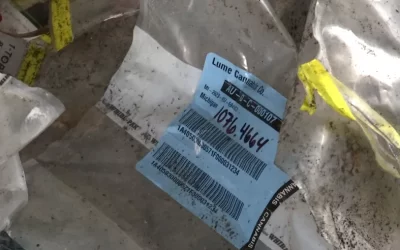Restoring Your Gun Rights
As of 4/17/24…There is still a second amendment
The Second Amendment of the United States Constitution grants citizens the right to bear arms, a fundamental aspect of American freedoms.
However, in some cases, just like every other right being slowly chipped away you may lose those rights which I guess would not be rights but “granted rights” by the grace of those in power. Certainly some people don’t deserve the right.
For residents of Michigan seeking to restore their firearms privileges, understanding the process and requirements is essential.
In this article, we’ll delve into the steps one can take to regain their Second Amendment rights in Michigan.
Understanding Michigan Law
Michigan’s laws regarding firearm ownership and possession are outlined in the Michigan Compiled Laws (MCL). Specifically, MCL 28.422 details the criteria for obtaining a Concealed Pistol License (CPL) and outlines the procedures for individuals seeking to restore their firearms rights.
You may want to come back and take a look at the law in more detail as this article does not dive too deep. Your specific situation may not be mentioned here but in the laws.
Causes of Denial
Before delving into the restoration process, it’s crucial to comprehend the common reasons for the denial of firearms rights. Individuals may face denial due to:
- Criminal Convictions: Felony convictions often result in the loss of firearms rights. This includes offenses such as assault, domestic violence, drug-related crimes, and certain types of theft.
- Mental Health: Adjudications: Individuals who have been involuntarily committed to a mental health facility or have been deemed legally incapacitated may face restrictions on firearms ownership.
- Domestic Violence Convictions: Convictions related to domestic violence can lead to the loss of Second Amendment rights, particularly if the offense involves the use or attempted use of physical force.

Steps to Restore Second Amendment Rights
1. Expungement of Convictions
For individuals with criminal convictions, pursuing expungement may be the first step towards restoring their firearms rights. Michigan’s recent expungement laws allow for the sealing of certain criminal records, enabling individuals to regain their firearms privileges under specific circumstances. Refer to MCL 780.621 for more information on the expungement process.
2. Petition for Restoration
Those who have lost their firearms rights due to criminal convictions or mental health adjudications can petition the court for restoration. This involves filing a petition with the circuit court in the county of residence. The court will review the individual’s case, considering factors such as rehabilitation, conduct since the conviction, and any mitigating circumstances. Consult MCL 28.425 for detailed information on the restoration process.
3. Compliance with Federal Requirements
In addition to state laws, individuals seeking to restore their firearms rights must also comply with federal regulations. This may include completing background checks and adhering to any federal restrictions on firearms ownership.
Seeking Legal Counsel
Navigating the process of restoring Second Amendment rights can be complex, especially considering the legal intricacies involved. As such, seeking guidance from a qualified attorney specializing in firearms law is highly recommended.
An attorney can provide invaluable assistance, ensuring that individuals understand their rights and obligations under both state and federal law.
Real Questions from Real Calls
Question: The application from the ATF Form 4473 asks if I use any illegal drugs. I have my medical marijuana card and it’s legal in Michigan right? So can I get a gun?
Answer: Unless you are the president’s son if you answered “No” on the form where it asks if you use illegal drugs you would be lying and your gun rights probably taken away and possibl;y charged with a crime.
Marihuana is still illegal federally and still in the public health code and listed as a controlled substance 1 in Michigan.
As it states on the ATF Form 4473 Part 1
Q: Are you an unlawful user of, or addicted to, marijuana or any depressant, stimulant, narcotic drug, or any other controlled substance?
Warning: The use or possession of marijuana remains unlawful under Federal law regardless of whether it has been legalized or decriminalized for medicinal or recreational purposes in the state where you reside.
Related Articles
No Results Found
The page you requested could not be found. Try refining your search, or use the navigation above to locate the post.
More Posts
Your Tax Dollars at Work: State pays $13M settlement for active shooter drill
Your Tax Dollars at WorkState pays $13M settlement for unannounced active shooter drill at Northville Township psychiatric children’s hospitalSomeone Missed the Memo...
Laws passed by Michigan lawmakers in 2023 will take effect
Several new laws passed by Michigan lawmakers in 2023 will take effect on Tuesday, Feb 13, 2023Making use of the first combined Democratic majority in the state House,...
Understanding Michigan’s Cyberbullying Law (MCL 750.411x)
Understanding Michigan's Cyberbullying Law With the ever-expanding digital landscape, cyberbullying has become a harsh reality for many. Michigan, recognizing its...
FAQs About Restoring Your Drivers License in Michigan
Frequently Asked Questions about Restoring Your Driver's License in MichiganHere's what you need to knowWhat are the steps to restore my driver's license in Michigan?...
Involuntary Manslaughter Charges and Penalties in Michigan
Involuntary Manslaughter Charges and Penalties in MichiganHere's things you should to knowWhat is Involuntary Manslaughter in Michigan? Involuntary manslaughter differs...
Cannabis Tax Payments Being Distributed in Michigan
Adult-Use Marijuana Tax Payments Being Distributed In MichiganHere's what they say...Treasury: Adult-Use Marijuana Payments Being Distributed to Michigan Municipalities...
The Expanding List of Crimes that Restrict Gun Ownership
The Expanding List of Crimes that Restrict Gun Ownership in MichiganHere are the LawsDomestic Violence The legislature passed a package of bills that add subsets to...
Forensic Science Division – DNA Profiling System
The Michigan State Police Forensic Science Division (FSD) DNA Profiling System is a comprehensive program that uses DNA analysis to support criminal investigations...
Apparent cannabis testing bags in trash pile in Lansing
Michigan's marijuana laws mandate that both retail recreational and medical marijuana undergo comprehensive testing conducted by independent laboratories. The purpose...
Evidence in Michigan Courts: Proposed Amendments of MRE
The Michigan Rules of Evidence are the rules adopted by the Michigan Supreme Court to govern evidentiary processes throughout Michigan's judicial system. Occasionally,...













